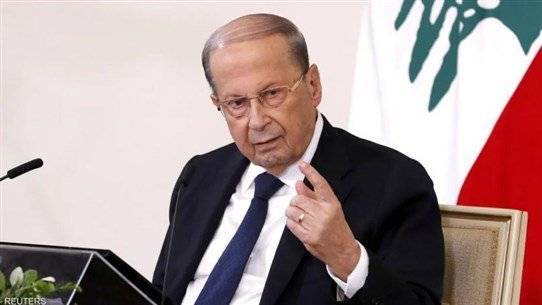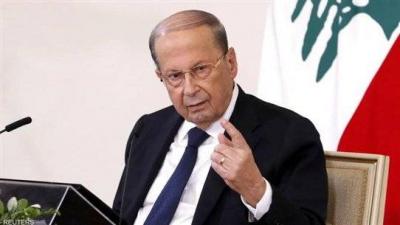President Michel Aoun may be truthful in his statement that he will leave Baabda Palace on October 31, 2022, the date his term ends, as conveyed by his closest allies, namely Hezbollah. However, for this plan to be complete, the obstinate president has conditioned that he will hand over Baabda to a government with full powers to fill the presidential vacancy in case electing a new president is delayed. In practical terms, Aoun's message to Hezbollah and the French can be summarized as: "I will remain in Baabda Palace unless a new government is formed."
The ready argument from Aoun's supporters is that it is unacceptable for parliamentary elections to occur on schedule without forming a government emerging from them. Furthermore, the legal experts within Aoun's camp assert that, constitutionally, a caretaker government cannot manage the country if electing a new president is delayed, as this constitutes a blatant violation of the constitution that they will not accept. Compounding the issue, the Free Patriotic Movement, led by Gibran Bassil, has preemptively rejected any constitutional ruling that allows the caretaker government to be bolstered and turned into a legitimate government, labeling these as "constitutional heresies" which ultimately infringe on presidential powers and undermine the first Christian position in the country.
In this context, Bassil's visit to Diman is significant, as a high-ranking leader within the Free Patriotic Movement leaked that Patriarch Mar Bechara Boutros al-Ra'i fully understands and supports Bassil's stance. Allegedly, the patriarch is planning to call for a broad meeting of Christian leaders to secure complete Christian backing for Aoun.
The impact of Aoun's messages was felt: Prime Minister-designate Najib Mikati returned to Baabda Palace to search for a way to form a government before "the axe falls," but sources within the national duo argue that forming the government may not be as easy as officials are suggesting. The conditions proposed to facilitate its formation involve including first-tier political ministers representing various political forces in the country, which is the crux of the problem. The prime minister-designate has thus far refused to form a "headache government," as he referred to it in front of his visitors, and there is external opposition to such types of governments alongside insistence on electing a new president.
Leadership sources affirmed that Lebanon is heading towards a severe and difficult crisis: "Aoun will not leave the palace unless a legitimate government is formed." They have communicated this to the Free Patriotic Movement, and it is evident, according to the sources, that an agreement on forming the government, which will practically assume presidential responsibilities, will be impossible due to the sharp divisions within the Christian camp and among the main forces in the country.
In a clear defense of Aoun and his position, the sources pointed out that Aoun has been honest when he repeatedly expressed his desire not to remain even a single day after his term ends; however, any change in his resistance to leaving the palace and handing over management to a caretaker government comes "from a purely constitutional viewpoint."
In light of the above, there are fundamental questions that must be answered to understand the reality of what is happening:
First: What does it mean for a high-ranking leader in the national duo to implicitly express agreement on the illegitimacy and unconstitutionality of a caretaker government's assumption of presidential duties? Does this mean Hezbollah is offering Aoun the same support at the end of his term that it provided before and after he was elected president?
Second: Does the persistent and renewed effort to form the government imply that we are headed for a long presidential vacancy?
Third: Are we going, deliberately and intentionally, towards a constitutional crisis in the country, starting with Aoun's refusal to leave Baabda Palace in a scene reminiscent of 1988, ultimately leading to holding an open dialogue table to reconsider the existing political system?




